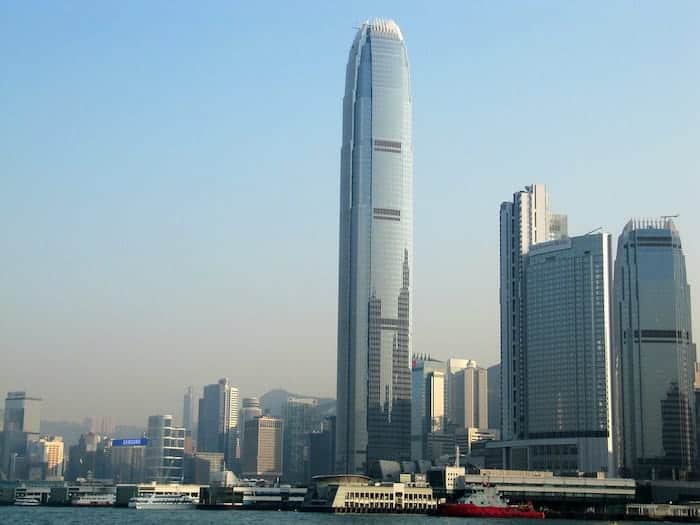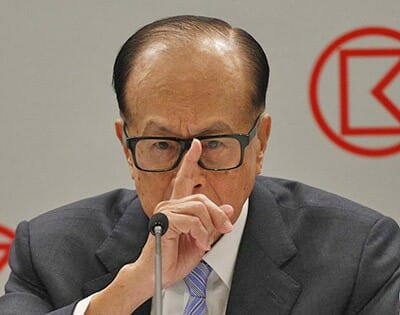
The appeal of Hong Kong’s IFC wasn’t enough to protect Henderson and Sun Hung Kai’s share prices
Stocks in Hong Kong’s major developers, including Sun Hung Kai, CK Asset and Wheelock, plunged on Friday on the news that Beijing is planning to impose controversial national security laws in Hong Kong.
After China’s central government on Thursday announced plans to establish regulations giving it direct control over security issues in the former British colony, Hong Kong’s largest developer by market capitalisation, Sun Hung Kai Properties, saw 7.4 percent of its equity wiped out in a single day.
Shares in the Kwok family controlled developer, which owns 22 million square feet of office and retail space in Hong Kong, including the International Finance Centre, plunged to HK$90.75 at the end of trading on Friday from HK$98.15 at the close of play on Thursday.
CK Asset and New World Watch Shares Dive
Shares in CK Asset – which is chaired by the son of Hong Kong’s richest man, Li Ka-shing – took an equally severe thrashing, falling 8 percent from HK$46.55 to HK42.60 over the same time frame.

In 2020, even Li Ka-shing has been taking a beating
The drubbing comes just six days after CK had warned shareholders to expect a fall in profits for the first half of the year – the first time the company had issued a profit warning since being spun off from Li Ka-shing’s business empire in 2015.
Hong Kong’s New World Development, which has been selling off property assets in the city following a plunge in residential sales due to the COVID-19 pandemic, was even worse off, suffering a ten percent drop in share value by the close of play on Friday.
The Hong Kong-listed firm, which is chaired by 73 year old tycoon Henry Cheng with his son Adrian Cheng as second-in-command, watched its share price slide from HK$8.85 to HK$7.99.
Wharf REIC Shares Down 9%
Wheelock & Company – which is controlled by billionaire Peter Woo and is one of Hong Kong’s largest commercial landlords – experienced a similar wipeout, with shares in its subsidiary Wharf REIC skidding more than nine percent from Thursday’s closing price of HK$31.30 to HK$28.45 at the end of trading on Friday.
Together with subsidiary Wharf REIC, the company owns 11.7 million square feet (1.1 million square metre) of commercial buildings in the city worth HK$276 billion – a blue chip portfolio that includes flagship properties Harbour City in Tsim Sha Tsui and Times Square in Causeway Bay.
The sell-off across Hong Kong’s top developers comes as their stock value had already been weakened as a result of twelve months of bad news, as this year’s COVID-19 pandemic followed 2019’s anti-government protests and the US-China trade war.
More Bad News in Hong Kong
Even before news broke on Thursday about Beijing’s intention to force through security legislation, market analysts had warned that commercial real estate capital and rental values in the Asian financial hub would tank in 2020.
Managing director of Vincorn Consulting and Appraisal Limited, Vincent Cheung, said that commercial property values in the core areas of Hong Kong have already fallen by 15 percent to 25 percent since June last year, when protests first erupted following an attempt by the Hong Kong government to enact a law that would have allowed the extradition of suspected criminals to mainland China.
Residential prices in the city have also been hit badly, falling almost seven percent since May last year, according to Knight Frank.
Despite Friday’s stock rout, representatives of JLL in Hong Kong were not yet ready to predict darker days, saying that the underlying fundamentals of the real estate market will be the most important factors in the foreseeable future.
“Supply and demand will remain the primary driver across both residential and commercial property markets in Hong Kong, with some existing downward pressure on office and retail rents to continue amidst global economic uncertainty,” a JLL spokesperson told Mingtiandi.
Leave a Reply